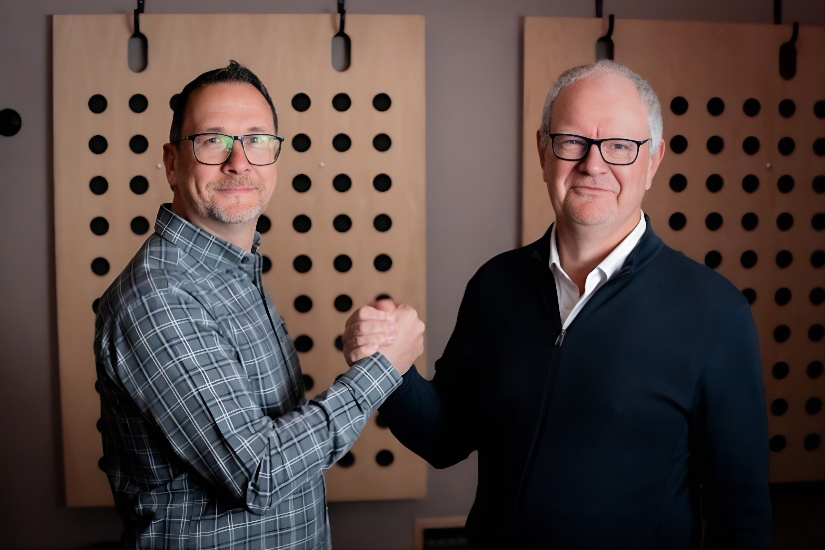July 06, 2020 I Coronavirus
Midwestern Music Camp Goes Virtual

Students participate in the Midwestern Music Camp via videoconference.
The Midwestern Music Camp and University of Kansas’s faculty came together to conduct a virtual version of their summer music camp held June 15-17. More than 1,900 students enrolled in the three-day event, free of cost thanks to financial support from the charity Band of Angels, Kansas City-based Meyer Music, Fox 4 Kansas City and Yamaha Music.
The camp included students from 46 states and U.S. territories; five countries participated; 72 virtual sessions were held; and 293 individual lessons were provided"Because so much has been shut down nationally, giving young musicians the chance to interact with professionals unique to their instruments felt even more important this summer,” said Matt Smith, KU’s associate director of bands and Midwestern Music Camp’s director. “With the economic impact of the COVID situation, we’re seeing more events go virtual. But, I haven’t seen anything that has attempted the size and scope of our music camp this summer. Campers from 46 states and multiple countries, such as Mexico, Hungary and Switzerland, participated.”
According to Sharon Toulouse, KU’s assistant director of bands and Midwestern Music Camp’s middle school camp director, this was the 85th Midwestern Music Camp. “When it became evident that camp couldn’t be held on campus, we knew we had to find a way to continue,” she said. “Canceling was never mentioned. We had discussions with our faculty to ensure they were on board. Not only were they on board; they were willing to donate their time. Mike Meyer [of Meyer Music] wouldn’t hear of this and he was able to compensate faculty through Band of Angels.”
Toulouse noted that a parent reached out to them prior to the camp to let them know how excited her child was to be able to attend. “Her child had tested positive for COVID-19 and had been quarantined in the house,” she said.
The Midwestern Music Camp welcomed band and orchestra students entering grades seven through rising college freshmen. Instruments offered included flute, oboe, bassoon, harp, clarinet, saxophone, trumpet, horn, trombone, euphonium, tuba, percussion, violin, viola, cello and string bass.
Camp leaders and University of Kansas faculty developed a lineup of instructors to work with students via Zoom sessions, pre-recorded YouTube content, and offered live special guest artist presentations and private lessons.
Campers chose from a variety of sessions, ranging from instrument-specific content to general topics that were of interest to all campers. The sessions lasted 10 to 60 minutes each.
Camp attendees were able to attend sessions from the following guest artists: Imani Pressley, the 19-year-old Grammy-nominated producer and artist; George Shelby, the Los Angeles-based Yamaha saxophone artist, session and show musician; Kat Rodriguez, who spent the last 10 years touring the world with Beyoncé‘s all-girl band; and Mads Tolling, the internationally renowned violinist and Grammy Award winner.
Meyer said the experience was well received by attendees. “They were saying that it was a lot of fun that they felt like that they had not had the opportunity to really continue to learn and play because they have not been in school,” he said. “And so they just were elated with the fact that they can get back to playing their instrument and they’re interacting with other people.
Meyer was elated himself. “It was something brand new, and the fact that we were able to reach almost seven times the number of students that we would have been able to reach with an in-person camp was just so exciting to me,” he said. “When you sign onto a Zoom meeting and you see 160 middle school and high school students with their clarinets watching an educational instruction about playing clarinet, that is super-exciting. They had a million other things they could be doing, but that that’s what they wanted to do with their time was just the coolest thing ever.”
Plans are underway to replicate the experience. “I have already reached out to the university of Kansas who helped coordinate it to plant the seed and say we would be very, very interested in funding this again,” Meyer said, who added that the virtual camp could become something that occurs at the same time as an in-person camp when that becomes possible to organize.
“At a typical in-person camp, you’re going to get 300 students,” he said. “At this virtual camp, there were 1,950 students. So if they could just dedicate a couple of people during the live camp, you’d still have the 300 that were there, but they could then broadcast what was happening at the camp to all the people that might not be able to make it to that camp.”











